Synopsis: Exploring the Intelligence of the Universe
This article delves into the provocative question of whether the Universe itself possesses intelligence or the capacity for thought.
Rejecting the intricate debate over the existence of God, it posits that the Universe exhibits a self-regulating nature akin to intelligence, mirroring the nurturing and destructive cycles of nature.
Distinguishing the concept of God, referred to as “The Great Architect of the Universe,” from the Universe itself, the article aligns with Masonic Deism, which proposes that God observes creation without direct intervention.
A fascinating connection is drawn between the structural distribution of galaxies and the neural networks found in the human brain, leading to the suggestion that the Universe could be likened to a colossal brain wherein our galaxy is merely one neuron.
This assertion gains scientific credibility through a 2014 study by Miguel Alcubierre and Alfredo Meneses Hernández, which identified striking similarities between the cosmic web and human brain connectivity patterns.
Moreover, the article highlights the limitations imposed by the speed of light on communication across vast cosmic distances, contrasting this with the rapid signaling that occurs within the human brain.
It introduces the idea of non-local connections, potentially akin to quantum entanglement, that may defy traditional notions of locality and suggest a deeper interconnectedness within the Universe.
The implications of such non-locality raise intriguing possibilities, including the existence of micro wormholes that enable instantaneous connections across vast distances.
The article also links these concepts to Freemasonry, emphasizing how the pursuit of order and intelligence resonates with the idea of a thinking Universe, which serves to inspire deeper philosophical contemplation.
Finally, it invites readers to ponder the possibilities offered by quantum physics, speculating on parallel worlds and cyclical cosmic events. While these ideas are largely theoretical and not universally supported, they do not contradict prevailing scientific understanding, stimulating further inquiry into the underlying nature of existence itself.

IMAGE CREDIT: the square magazine digital collection
Is the Universe Intelligent with the capacity for think ?
In the journey of understanding existence, a question arises: is the Universe itself intelligent? Can we ascribe thoughts or consciousness to a cosmos that seemingly operates with precision and order? This exploration does not delve into the divinity of God or the complexities of religious belief but rather investigates the concept of an intelligent Universe through the lens of nature, connection, and esoteric philosophy.
The Nature of Intelligence in the Universe
Intelligence is often thought of in human terms—thought processes, reasoning, and decision-making. However, one might observe a kind of intelligence manifesting in the self-regulation of nature. The cycles of creation, conservation, and destruction echo an intelligent design.
Nature could be viewed as a nurturing Mother, fostering life and ensuring continual regeneration through destruction. This self-regulatory aspect asks whether the Universe itself behaves like an intelligent entity, autonomously managing its intricate mechanisms.
This perspective aligns with the doctrine of Masonic Deism, which suggests that while God, referred to as “The Great Architect of the Universe,” is a separate entity responsible for its design, He does not interfere directly with its workings.
This conceptual separation invites philosophical inquiry into the implications of such autonomy and whether a grander intelligence encapsulates the cosmos.
Nature and “The Great Architect”
The distinction between the Creator and the creation is critical in understanding the Universe’s potential intelligence. The analogy of God as the architect who designed the fabric of existence frames the Universe as a magnificent edifice operating independently.
This framing invites Masons and philosophers alike to ponder the responsibility of the individual in relation to the greater whole. Understanding the interconnectedness of all things fosters a sense of duty to contribute positively to this architectural masterpiece.
In examining the operating principles of the Universe, there is an inherent inclination to explore how these might relate to human consciousness. If nature embodies intelligence through its self-managing systems, does that not echo the human desire for understanding and meaning?

IMAGE CREDIT: the square magazine digital collection
Cosmic Structures and Brain Connectivity
Recent scientific inquiries reveal something intriguing—a structural similarity between the distribution of matter in the universe and the neural connections of the human brain. The Universe contains an astounding 200 billion galaxies, which do not disperse uniformly but cluster together under the influence of gravity, creating vast superclusters and galactic filaments. In a striking allegory, this cosmic web resembles the network of neurons in the human brain.
The parallel raises profound questions about consciousness at a universal scale. Could it be that the Universe functions similarly to a brain, processing information and experiences through interconnected elements?
While galaxies serve as neurons in this grand cerebral model, one must wonder if we, as conscious beings, are experiencing a self-reflection of the universe’s thoughts.
The study conducted by Mexican astrophysicist Miguel Alcubierre and neuroscientist Alfredo Meneses Hernández reinforces this idea, revealing “remarkable similarities” between the cosmic web and the brain’s connectome.
Such findings invite contemplation about the deeper meanings of intelligence, awareness, and interconnectedness, suggesting perhaps that consciousness is not an isolated phenomenon but part of a larger, universal experience.
Research Findings: A Remarkable Similarity
Within the framework of neuroscience and astrophysics, the emerging parallels compel individuals to re-examine their roles in both existence and the cosmos. The research indicating that the structure of the universe up to 300 million light-years aligns with the neural connections of the human brain invites a metaphysical reflection on cognition and connection.
This resemblance leads to an evocative question: if our galaxy represents a neuron within a grander cosmic brain, what thoughts and processes manifest through its celestial activity? This association evokes the ancient Hermetic axiom, “As Above, So Below,” suggesting that understanding the universe may also illuminate the nature of the self.
As individuals delve deeper into this intellectual terrain, they encounter the philosophical conundrum of consciousness. What does it mean to be aware? Is awareness inherent to the Universe, or does it arise only within beings like humanity?
Communication Speed Limitations
There exists a significant disparity between the communication and connectivity within the human brain and those occurring on a cosmic scale. Neurons send rapid signals—between 5 and 50 exchanges per second—with most operating at short distances. Conversely, the vastness of the Universe limits communication, as light itself takes eons to traverse great distances.
If galaxies are likened to neurons, this limitation raises questions concerning the Universe’s ability to “think” or process information effectively. With signals taking millions or even billions of years to travel across vast expanses, the cosmic brain appears to be a slow and cumbersome entity compared to the rapid complexities unfolding in the human mind.
This vast difference challenges assumptions. If the Universe can be likened to a thinking brain, what degree of awareness or consciousness can take place if thoughts and ideas are communicated so infrequently? If the pace of thought and connection within the cosmos is stymied by distance, how might that alter our understanding of its intelligence?
Reflecting on this slow exchange leads one to ponder: might this limitation produce profound silence within the Universe, or is it a power of contemplation, a deep, introspective intelligence?

IMAGE CREDIT: the square magazine digital collection
Concept of Non-local Connections
As boundaries of understanding expand, the focus shifts towards a promising concept emerging from quantum physics—the idea of non-local connections. If the Universe indeed contains interdimensional portals or connections that bypass traditional limits on locality, it would radically alter the understanding of cosmic interactions.
Researchers at DeepMind, an artificial intelligence company, have introduced compelling concepts suggesting that locality—a fundamental property of nature—may not persist at subatomic levels. If locality is challenged, the implications are profound. The Universe could potentially house connections that allow for information transfer between seemingly distant regions, akin to quantum entanglement.
Such quantum entanglement, which grants interconnectedness between particles regardless of distance, hints at a far more intricate tapestry woven into the fabric of the Universe. If non-locality allows for rapid connections, it implies that different parts of the Universe might be far more engaged with each other than previously believed.
This reflects back to hermetic principles that speak to the interconnectedness of existence. Everything is connected, a tenet emphasized in many philosophical and esoteric traditions. If the Universe engages through non-local connections, it suggests a level of awareness and intelligence even previously unimagined.
Implications of Non-locality
The implications of non-local connections lead to an exhilarating—though speculative—spectrum of possibilities. If the Universe operates through these unseen pathways, it could fundamentally alter how individuals perceive their relationship with the cosmos.
Could the Universe be a vast tapestry of interconnected experiences, with each galaxy and cosmic entity contributing to a greater consciousness?
Among the inquiries into non-locality is the consideration of wormholes, which theoretical physics suggests could serve as shortcuts in space-time. While large wormholes may not exist as practical solutions within our universe, the idea of quantum wormholes introduces an enticing avenue for exploration. These connections could create pathways that facilitate instantaneous travel or information exchange across cosmic distances.
In contemplating these aspects, there is philosophical resonance within the notion of the Demiurge, a concept from Gnostic traditions. The Demiurge, portrayed as an intermediary creator or artisan responsible for the material universe, may well represent this universal intelligence—a catalyst weaving together the disparate threads of existence.
Freemasonry and Universal Intelligence
Freemasonry often promotes an emphasis on intelligence, order, and the idea of a greater architectural design permeating existence itself. The principles guiding Freemasonry resonate with the philosophy surrounding a thinking Universe, where individual members serve as builders within this grand design.
As stewards of knowledge, Masons exemplify a commitment to seeking truth and expanding consciousness. The allegory of a unified, intelligent cosmos aligns with the Masonic ideals of fraternity, personal growth, and serving the greater good. The exploration of existence through a lens of interconnectedness prepares individuals to embrace their roles as builders of knowledge and compassion.
In reflecting upon the symbol of the Cosmic Architect, one can draw parallels that continue to influence philosophical dialogues on the structure of life, unity, and purpose. The pursuit of understanding in Freemasonry embodies the search for enlightenment, tying it together with the idea of a Universe that is perhaps more aware than one might imagine.

IMAGE CREDIT: the square magazine digital collection
Possibilities within Quantum Physics
As individuals ponder the implications of these interpretations, one must confront the myriad possibilities that arise from quantum physics theories. Ideas such as parallel worlds generated by quantum fluctuations, cyclical cosmic events repeating through time, and interconnected realities all emerge as fascinating considerations.
While none of these ideas are conclusively supported by scientific evidence, they open avenues for philosophical reflection, inviting speculation on the essence of existence itself. Just as alchemists of old sought to understand the fundamental nature of reality, modern thinkers grapple with the astounding discoveries of quantum mechanics.
The notion that what is perceived is but a thin veil over an intricate, interconnected reality proclaims that humanity’s understanding is merely scratching the surface of existence. The philosophical considerations posed by such explorations invite deeper inquiry into awareness, consciousness, and the nature of being.
The Intelligent Universe
In conclusion, while the inquiry into whether the Universe is intelligent or capable of thought may yield no definitive answer, the exploration encourages philosophical and esoteric reflection. Possibilities tethered to interconnectedness, non-locality, and the very nature of existence suggest that awareness may span far beyond the limitations imposed by humanity’s understanding.
Through the lenses of science, philosophy, and mysticism, individuals are invited to engage with the idea that the Universe itself is a grand tapestry interwoven with consciousness, purpose, and insight. As we reflect upon our roles within this immense architecture, the call for stewardship, awareness, and compassionate engagement with the cosmos resonates louder than ever.
Ultimately, as we explore these profound questions, it remains conceivable that the Universe is not merely a collection of stars and galaxies but rather, a thinking, conscious entity engaging in an eternal dialogue with itself.
How can the lessons discussed in the article be applied for Self-Improvement?
The article explores profound themes rooted in esoteric philosophy, inviting individuals to consider the nature of consciousness, interconnectedness, and the intelligence inherent within the Universe.
It delves into allegories that can serve as guiding principles for personal growth and understanding. Here are some of the deep esoteric teachings that can be derived from the text and how individuals can apply this knowledge to their self-improvement journey.

IMAGE CREDIT: the square magazine digital collection
Understanding the Universe as a Reflection of Self
The idea that the Universe is a reflection of our own consciousness is central to many esoteric teachings. The mantra “As Above, So Below” speaks to the profound connection between our internal states and the external cosmos.
In the text, the structural similarities between the distribution of galaxies and the neural connections in the human brain suggest that understanding the cosmos is also a pathway to understanding oneself.
Application for Self-Improvement: Individuals can begin to cultivate self-awareness by reflecting on personal thoughts, feelings, and experiences as manifestations of universal truths.
Meditation or contemplative practices that focus on connecting with the larger cosmos can enhance this awareness. Recognizing patterns within oneself that echo the order of the Universe can foster a deeper sense of purpose and personal responsibility.
The Principle of Interconnectedness
The article highlights the concept that everything in the Universe is interconnected. This aligns with the philosophical teachings of various esoteric traditions, which emphasize the unity of all beings and the importance of recognizing our roles within this interconnected web.
The mention of cosmic structures resembling the brain’s neural network reinforces this idea, suggesting that just as neurons communicate within the brain, individuals have a responsibility to connect with others and the world around them.
Application for Self-Improvement: Embracing interconnectedness can lead to greater empathy, compassion, and cooperation with others. Practicing acts of kindness, seeking to understand diverse perspectives, and engaging in community-building efforts can nurture this interconnectedness.
Individuals can actively engage in relationships that promote mutual growth and learning, thereby enhancing their own personal development and that of others.
The Role of the Cosmic Architect
The article references “The Great Architect of the Universe” as a symbol of order and design, suggesting that there exists an intelligence that oversees the unfolding of existence. In esoteric traditions, this figure often represents a universal mind that creates, sustains, and evolves life.
Understanding this aspect of the Universe can inspire individuals to reflect on their roles as co-creators of their destinies.
Application for Self-Improvement: Individuals can harness this knowledge by embracing their creative potential. By recognizing that they are architects of their own lives, they can set intentions, visualize their goals, and take actionable steps toward self-improvement.
Engaging in creative expression—whether through art, writing, or other forms—can encourage personal insights and facilitate a deeper connection to the Universal intelligence that guides all creation.

IMAGE CREDIT: the square magazine digital collection
Embracing Continuous Learning and Growth
The article discusses the limitations of communication across cosmic distances, thereby questioning the nature of thought and understanding in the universe. It emphasizes the concept of non-locality, suggesting that ideas and interactions may transcend our traditional perceptions of space and time. This understanding invites individuals to embrace a mindset of continuous learning and personal evolution.
Application for Self-Improvement: Recognizing the potential for growth beyond conventional boundaries encourages individuals to explore new ideas, experiences, and realms of knowledge.
Engaging with diverse disciplines—ranging from science to art, from philosophy to spirituality—expands one’s perspective. Committing to lifelong learning opens up pathways for personal development and fosters innovative thinking.
Cultivating a Connection to the Universe
The article encourages contemplation of the Universe as a thinking entity. This interpretation has deep implications for personal growth; recognizing oneself as part of a larger consciousness can instill a sense of belonging and responsibility. The idea that the universe might “think” through individuals adds depth to the understanding of personal actions and intentions.
Application for Self-Improvement: Individuals can deepen their connection to the Universe through mindfulness practices that promote presence and awareness.
Techniques such as meditation, nature immersion, and reflective journaling can facilitate a sense of unity with the cosmic whole. By tuning into this connection, individuals can cultivate insights and inspirations that guide their decisions and actions.
In conclusion, the text encapsulates rich esoteric teachings that extend beyond mere theoretical concepts.
By recognizing our relationship with the Universe, embracing interconnectedness, understanding our role as co-creators, committing to continuous learning, and cultivating a deep connection with the cosmos, individuals can embark on transformative journeys of self-improvement.
These teachings not only enhance personal growth but also foster broader awareness for the collective journey we share within the grand tapestry of existence.
Article by: Margaret S.

Margaret S. is a retired lecturer and devotes much of her time to theological and philosophical writing.
She was made a Freemason in the International Order of Freemasonry for Men and Women - Le Droit Humain.
(Margaret S. is her pen name for all her masonic papers)
Recent Articles: Esoteric Masonry
 Explore the multifaceted concept of the Divine across various cultural and religious perspectives. Delve into the intriguing deliberations on the Great Architect, Demiurge, and their roles in shaping our understanding of the cosmos, blending philosophical, theological, and metaphysical insights into a rich tapestry of human spirituality. |
 Unveiling the Mysteries: Explore the Enigmatic World of Rosicrucianism! Dive into the fascinating origins and teachings of the Rosicrucian tradition, shaped by the mythical figure Christian Rosenkreuz. Discover the secrets of alchemy, spiritual transformation, and esoteric knowledge. Unlock the hidden wisdom that has captivated seekers for centuries. Unleash your inner mystic today! |
 An Esoteric Interpretation of the Holy Royal Arch Delving into the profound mysteries of the Holy Royal Arch, Matt DA Fletcher offers an esoteric interpretation that challenges the conventional understanding of Freemasonry. While Craft Masonry is clear in its teachings, the Royal Arch remains an enigma for many. Fletcher's exploration uncovers the symbolic and philosophical depths of this degree, revealing its significance in the Mason's journey towards reintegration with the Creator. |
 Stoicism, Freemasonry, and the Modern Man Discover how the ancient wisdom of Stoicism can enrich Freemasonry and modern life. Dr. Chacón-Lozsán Francisco M.˙.M.˙. explores Stoic principles like virtue, resilience, and inner peace, offering practical insights for today's challenges. Learn how these timeless teachings can foster personal growth, ethical conduct, and emotional stability. |
 Explore the evolution of Masonic rites with the Universal Rite, a modern adaptation of the Ancient and Accepted Scottish Rite. Discover how it integrates contemporary principles, promotes intercultural dialogue, and ensures the timeless values of Freemasonry remain relevant in today's world. |
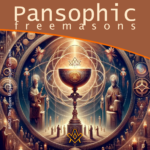 Unveil the secrets of Pansophic Freemasonry, a transformative journey through the ancient mystical traditions. Delve into the sacred realms of Rosicrucianism, Templar wisdom, Kabbalah, Gnosticism, and more. Discover the Graal, the sacred Grail that connects all esoteric paths. Embrace a holistic spiritual quest that reveals the profound mysteries of self and the universe. |
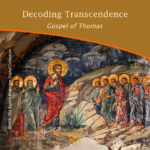 Dive into a spiritual journey where self-awareness is the key to enlightenment. The Gospel of Thomas and Masonic teachings converge on the profound truth that the path to transcendent wisdom lies within us. Embrace a diversified understanding of spirituality, emphasizing introspection as the gateway to a universally respected enlightenment. Explore, understand, transcend. |
 Philosophy the Science of Estimating Values Philosophy is the science of estimating values. The superiority of any state or substance over another is determined by philosophy. By assigning a position of primary importance to what remains when all that is secondary has been removed, philosophy thus becomes the true index of priority or emphasis in the realm of speculative thought. The mission of philosophy a priori is to establish the relation of manifested things to their invisible ultimate cause or nature. |
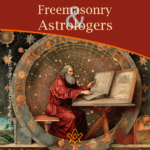 Unlocking the Mysteries: The Surprising Connection Between Freemasonry and Astrologers Revealed! Delve into the intriguing world of Freemasonry and explore its ties to astrological practices. Discover how these two distinct realms intersect, offering a fascinating glimpse into the esoteric interests of some Freemasons. Uncover the hidden links and unravel the enigmatic bond between Freemasonry and astrologers! |
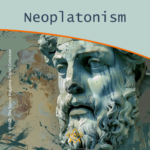 Neoplatonism, a philosophy with profound influence from the 3rd to the 6th century, merges Platonic ideals with Eastern thought, shaping Western and Middle-Eastern philosophy for two millennia. It emphasizes the unity of the individual with the supreme 'One', blending philosophy with theology and impacting major religious and philosophical movements, including Christianity and Islam. |
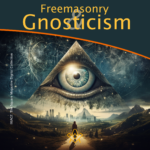 The enigmatic allure of Freemasonry's ancient rituals and Gnosticism's search for hidden knowledge capture the human spirit's endless quest for enlightenment. Between the stonemason's square and the Gnostic's divine spark lies a tantalizing intersection of philosophy, spirituality, and the pursuit of esoteric wisdom. Both traditions beckon with the promise of deeper understanding and moral elevation, inviting those who are drawn to unravel the tapestries of symbols and allegories. Whether through the fellowship of the lodge or the introspective journey of the soul, the paths of Freemasonry and Gnosticism represent a yearning to connect with something greater than ourselves—an impulse as old as time and as compelling as the mysteries they guard. |
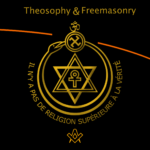 Embark on a journey through time and spirituality with our in-depth exploration of the Theosophical Society's Seal. This ancient emblem, rich with symbols, bridges humanity with the cosmos, echoing through the world's great faiths and diverse cultures. Our paper delves into the six mystical symbols, untangling their profound meanings and tracing their presence in historic art worldwide. Unaffiliated with worldly movements, these symbols open a window to esoteric wisdom. We also probe potential parallels with Freemasonry, seeking threads that might connect these storied organizations. Join us in unveiling the universal language of the spirit encoded within this enigmatic Seal. |
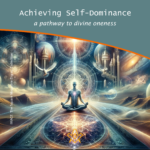 Discover the pathway to divine oneness through the concept of self-dominance. This thought-provoking essay explores the profound connection between self-control, spiritual growth, and achieving unity with the divine essence. With an interdisciplinary approach, it offers practical steps towards expanding consciousness and deepening our understanding of the divine. |
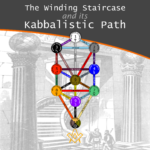 The Winding Staircase and its Kabbalistic Path The Winding Staircase in freemasonry is a renowned symbol of enlightenment. In this article, we explore its connection to Kabbalistic thought and how it mirrors the inner growth of a candidate as he progresses throughout his Masonic journey. From faith and discipline in Binah, to strength and discernment in Geburah, and finally to victory and emotional intuition in Netzach, each step represents a crucial aspect of personal development. Join us as we delve into the esoteric meanings of this powerful symbol. |
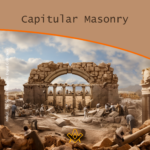 Unravel the mystic origins of Capitular Masonry, a secretive Freemasonry branch. Explore its evolution, symbolic degrees, and the Royal Arch's mysteries. Discover the Keystone's significance in this enlightening journey through Masonic wisdom, culminating in the ethereal Holy Royal Arch. |
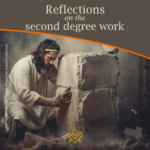 Reflections on the Second Degree Work Bro. Draško Miletić offers his reflections on his Second Degree Work – using metaphor, allegory and symbolism to understand the challenges we face as a Fellow Craft Mason to perfect the rough ashlar. |
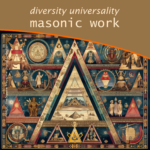 Diversity and Universality of Masonic Work Explore the rich tapestry of Masonic work, a testament to diversity and universality. Uncover its evolution through the 18th century, from the stabilization of Symbolic Freemasonry to the advent of Scottish rite and the birth of Great Continental Rites. Dive into this fascinating journey of Masonic systems, a unique blend of tradition and innovation. Antonio Jorge explores the diversity and universality of Masonic Work |
 Nonsense as a Factor in Soul Growth Although written 100 years ago, this article on retaining humour as a means of self-development and soul growth is as pertinent today as it was then! Let us remember the words of an ancient philosopher who said, when referring to the court jester of a king, “It takes the brightest man in all the land to make the greatest fool.” |
 Freemasonry: The Robe of Blue and Gold Three Fates weave this living garment and man himself is the creator of his fates. The triple thread of thought, action, and desire binds him when he enters into the sacred place or seeks admittance to the Lodge, but later this same cord is woven into the wedding garment whose purified folds shroud the sacred spark of his being. - Manly P Hall |
 By such a prudent and well regulated course of discipline as may best conduce to the preservation of your corporal and metal faculties in the fullest energy, thereby enabling you to exercise those talents wherewith god has blessed you to his glory and the welfare of your fellow creatures. |
 Jacob Ernst's 1870 treatise on the Philosophy of Freemasonry - The theory of Freemasonry is based upon the practice of virtuous principles, inculcating the highest standard of moral excellence. |
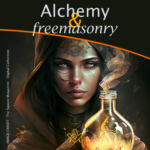 Alchemy, like Freemasonry, has two aspects, material and spiritual; the lower aspect being looked upon by initiates as symbolic of the higher. “Gold” is used as a symbol of perfection and the earlier traces of Alchemy are philosophical. A Lecture read before the Albert Edward Rose Croix Chapter No. 87 in 1949. by Ill. Bro. S. H. Perry 32° |
 The spirit of the Renaissance is long gone and today's globalized and hesitant man, no matter ideology and confession, is the one that is deprived of resoluteness, of decision making, the one whose opinion doesn't matter. Article by Draško Miletić, |
 A Mason's Work in the First Degree Every Mason's experiences are unique - here writer and artist Draško Miletić shares insights from his First Degree Work. |
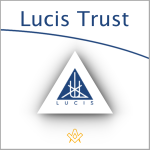 Initiation and the Lucis Trust The approach of the Lucis Trust to initiation may differ slightly to other Western Esoteric systems and Freemasonry, but the foundation of training for the neophyte to build good moral character and act in useful service to humanity is universal. |
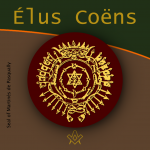 Who were the mysterious 18th century Élus Coëns – a.k.a The Order of Knight-Masons Elect Priests of the Universe – and why did they influence so many other esoteric and para-Masonic Orders? |
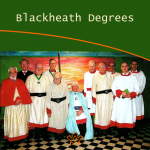 Bro. Chris Hatton gives us his personal reflections on the history of the 'house at Blackheath and the Blackheath Orders', in this wonderful tribute to Andrew Stephenson, a remarkable man and Mason. |
 Book Review - Cagliostro the Unknown Master The book review of the Cagliostro the Unknown Master, by the Editor of the book |
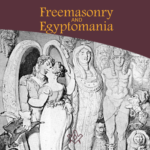 We explore fascinating and somewhat contentious historical interpretations that Freemasonry originated in ancient Egypt. |
 Is Freemasonry esoteric? Yes, no, maybe! |
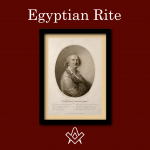 Egyptian Freemasonry, founder Cagliostro was famed throughout eighteenth century Europe for his reputation as a healer and alchemist |
masonic knowledge
to be a better citizen of the world
share the square with two brothers

click image to open email app on mobile device






